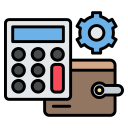Features That Truly Matter This Year
Smart categorization, duplicate detection, and recurring bill tracking should remove busywork without hiding context, allowing you to confirm, correct, and learn from patterns rather than surrendering decisions to algorithms.
Features That Truly Matter This Year
Flexible envelopes and sinking funds should adjust to shifting priorities, celebrating small wins while recalculating timelines when income dips, rent increases, or a newborn reshapes every assumption about spending.




